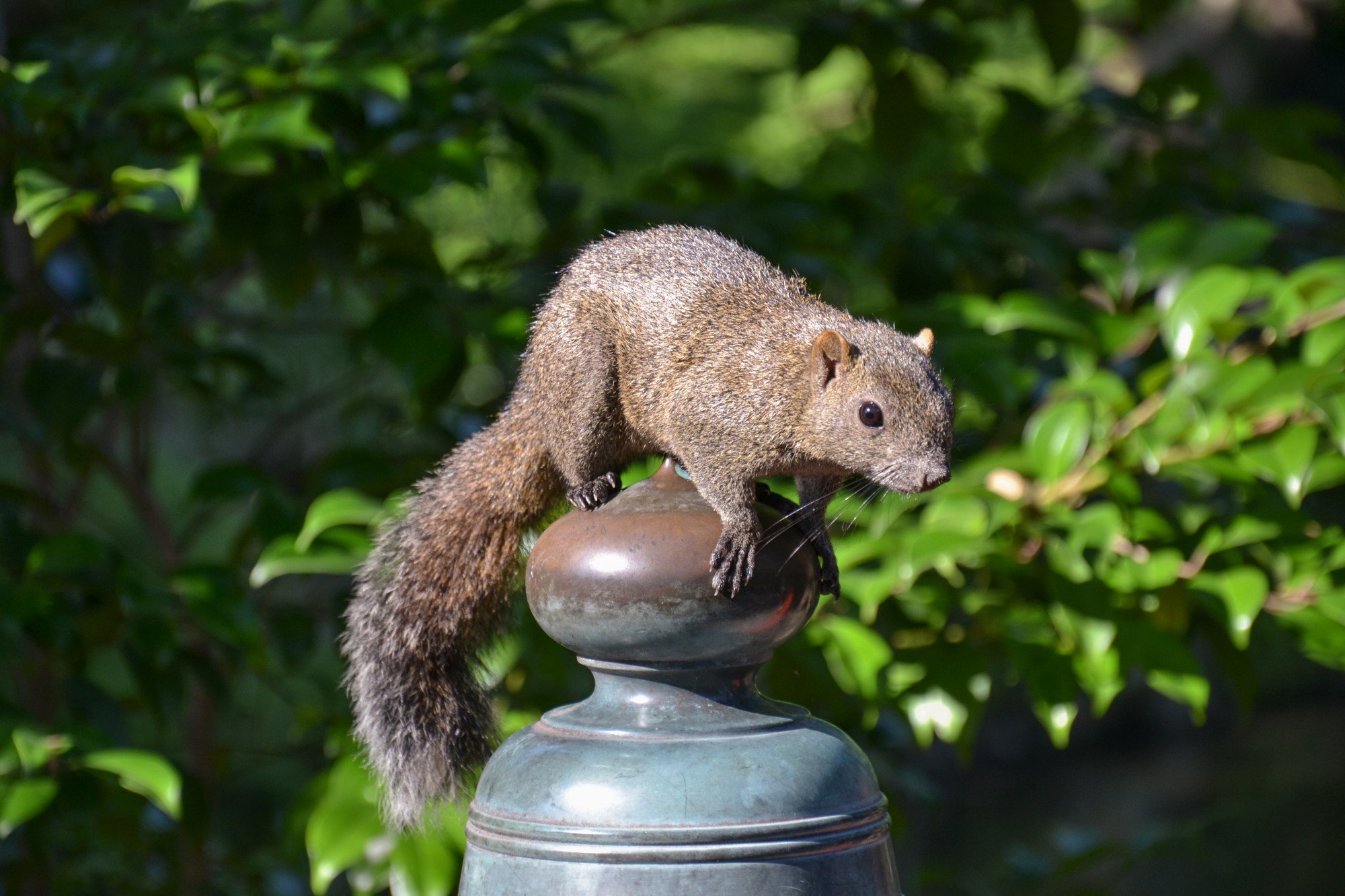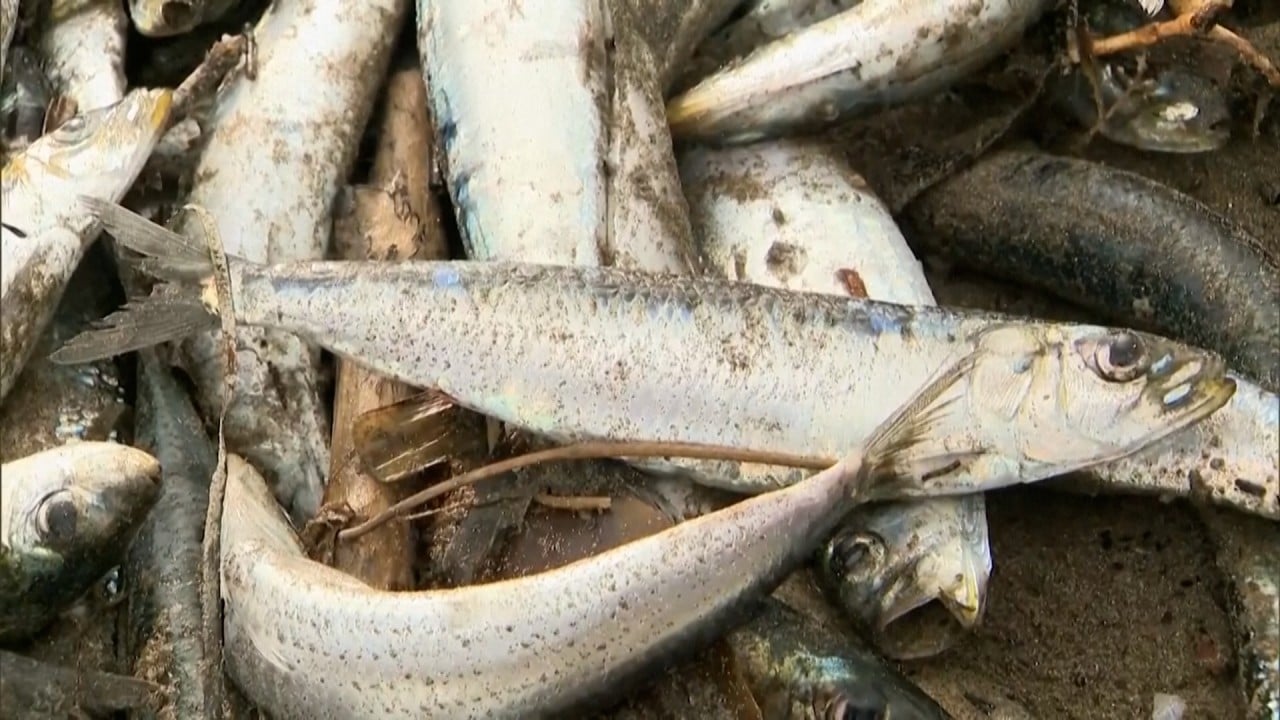Japan city to cull ‘invasive’ squirrels harming ancient buildings, biodiversity in Kamakura
Authorities in the ancient Japanese city of Kamakura are cracking down on the rapidly growing population of Formosan squirrels that have terrorised the community, damaging wooden shrines and burrowing into their thatched roofs, stealing local residents’ crops and chewing through power cables.
The critters, which are popular with children and the city’s many sightseeing tourists, are thought to be the descendants of squirrels that were bought as pets but released by their owners after they became too large.
Local authorities in 2000 introduced a scheme to catch and euthanise the squirrels, capturing 69 of them, the Mainichi newspaper reported. But numbers continued increasing, reaching an estimated high of 1,571 squirrels in 2018. That figure will be eclipsed this year, officials said, with 1,533 captured in the first eight months of 2023 alone.
Japan farmers urged not to crack from stress of bird flu crisis, egg shortages
Japan farmers urged not to crack from stress of bird flu crisis, egg shortages
The Kamakura local government has put forward a supplementary budget request to fund the campaign against the squirrels, including providing local residents with cages that can be baited and putting up posters asking tourists not to feed the animals. Altogether, the city has requested an extra 7 million yen (US$48,000) for its effort, with the humane killing of a single animal by a specialist contractor priced at 6,270 yen.
Officials from two of Kamakura’s most famous landmarks, the Tsurugaoka Hachimangu Shrine and Hasedera Buddhist temple, admitted that squirrels had caused damage to wooden sections of the centuries-old complexes and managed to enter roof spaces.
“They look cute, but they are causing so much damage in the town. It has become a real problem for a lot of people,” a Kamakura city official who asked not to be named told This Week in Asia.

Keiko Yamazaki, a board member of the Japanese Coalition for Animal Welfare, said the problem went beyond property damage.
“A big issue here is biodiversity,” she said. “As an island, Japan has long been a hotspot for diversity and that is being endangered by many different invasive species that have been introduced over time, such as these squirrels.”
Yamazaki said, near her home in Chiba Prefecture, east of Tokyo, there had been problems with monkeys from other parts of the world that escaped from zoos or wildlife parks and then bred with the indigenous monkey population, altering the species.
There are countless examples of imported animals escaping or being dumped by uncaring owners, she said, such as colonies of red-back spiders establishing themselves near ports after arriving aboard cargo ships and largemouth bass, introduced for game fishermen, completely eliminating native species of lake fish.
Bear attacks up in Japan as climate change pushes them out of natural habitats
Bear attacks up in Japan as climate change pushes them out of natural habitats
Elsewhere in Japan, snapper turtles and crayfish native to the United States have been found in suburban ponds; raccoons that were once cute pets have thrived after being left to fend for themselves; and the green anole lizard, a fast-breeding and ravenous reptile, has caused havoc among the unique insect population of Chichijima Island, south of Tokyo, driving some to the brink of extinction.
There are presently more than 150 species of animal and plant that are on the environment ministry’s list of alien invaders.
“This is not a problem that only affects Japan, and in many ways it is too late to halt the damage, but we cull animals like deer, boars and bears when they cause damage to farmers’ crops and so on. So we need to do the same with these invasive species,” Yamazaki said.
Culling is a frequent topic of debate among animal activists, she said, but in a recent discussion at the Go animal study group, which she founded, around 70 per cent of people concluded that it was necessary to euthanise some invasive animals to protect what was left of the nation’s biodiversity, although all were in favour of a safe and humane killing.
Just as important, she said, were measures by the government to change the laws to make it harder for unscrupulous animal dealers or pet shop owners to import – often illegally – exotic species of animal that are often simply disposed of in the nearest forest or lake when the owner becomes bored.
“This is another worldwide problem, but it is important to stop the black-market trade in exotic pets and Japan should look at the legislation that the European Union has been introducing,” she added.


